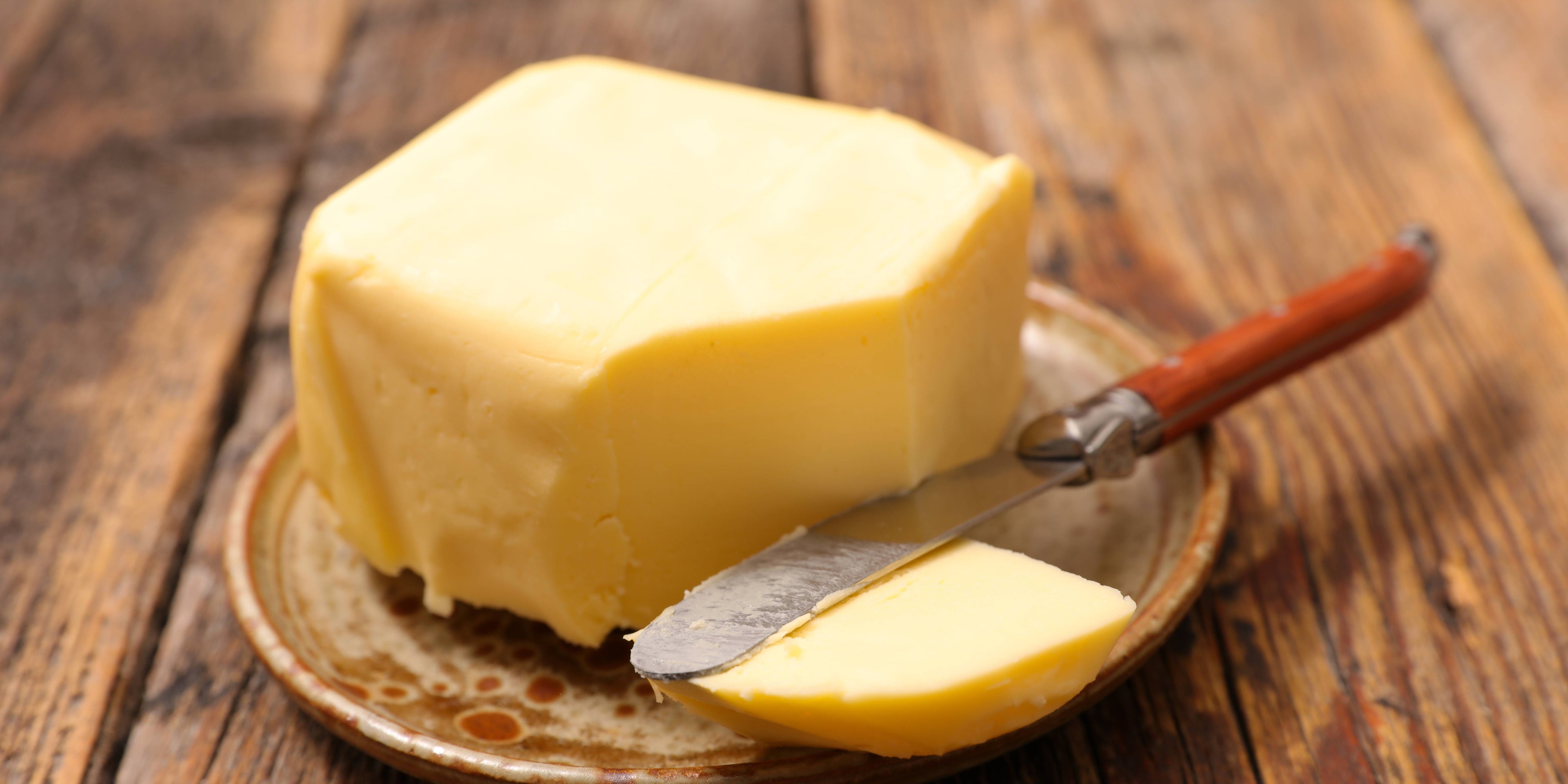The Best Butter Substitutes
Ingredient Swaps
Whether you’ve run out of butter or you’re looking for a dairy-free or vegan alternative for your bake, here are the best replacements for butter.
Bakers use butter in bakes to give their recipes richness, tenderness and structure; it ‘traps’ steam and any carbon dioxide in the batter as it bakes, letting it rise. When mixed in properly, it melts evenly and absorbs surrounding flavours, creating an even, balanced flavour profile.
Butter alternatives
There are plenty of options if you’re looking for a butter replacement for your recipe; remember to check our ratio guide to ensure your bake turns out as planned.
Margarine
Replacement ratio: 1:1
An ideal butter replacement, margarine or spread is made with vegetable oil with a similar consistency and flavour to butter. It doesn’t have the richness that butter adds, but can create a softer end texture thanks to its high water content. If you’re after a vegan butter alternative, check the label closely - some margarines use animal products like milk or whey.
Cream cheese
Replacement ratio: 1:1
Rich, full-fat cream cheese works well as a butter alternative - you can also sub in soft cheeses like ricotta or mascarpone to replace butter. Make sure you strain any ‘wetter’ cheeses with a cheesecloth before using them to make sure your recipe doesn’t have too much liquid added. Cream cheese may change your bake’s flavour slightly, so it’s best used in savoury dishes where possible.
Unsweetened full-fat natural yoghurt
Replacement ratio: 250g or less, 1:1. More than 250g: 1:1 with an additional 60g of plain flour per 250g used
Full-fat Greek yoghurt is similar in consistency to solid butter, and adds a rich, creamy flavour to your bakes. It can add a slightly-tart, tangy flavour to recipes, and is an ideal replacement for people looking to cut down their butter intake. Remember to add extra flour if your recipe calls for more than 250g of butter, as yoghurt can add extra liquid you’ll need to compensate for.
Full-fat mayonnaise
Replacement ratio: 1:1
Mayonnaise's rich, tangy flavour adds richness and depth to dishes such as scones and shortcakes. The oil content may make your bake slightly-dense and moist, so it’s better used for ‘stodgy’ recipes which can take a little extra liquid. Mayonnaise may be a better butter substitute for recipes which need melted butter.
Vegan and dairy free butter substitutes
Olive oil or vegetable oil
Replacement ratio: 1:1
Olive or vegetable oil is an ideal alternative for recipes that need melted butter - however, these oils aren’t suitable for recipes which need solid butter, such as icing. Remember to limit any other liquids to avoid a soggy bake, and use vegetable oil if you want to minimise interfering with the other ingredients’ flavours. Olive oil has a light fruity flavour which lends itself well to cookies, muffins and cakes.
Unsweetened apple sauce
Replacement ratio: 1:1
Although it’s better for bakes with a sweet flavour profile, apple sauce can be a decent butter alternative. Apple sauce works well with more robust recipes such as breads and muffins; you also might want to reduce the amount of sugar you use to balance out the sugar content of the apple sauce.
Mashed banana
Replacement ratio: 1:1
Mashed, ripe bananas are a great dairy-free butter alternative - however, they work best when combined with a small drizzle of avocado or coconut oil to work their magic. Mash or whip the banana until it’s smooth, and add to pancakes or brownies. Banana works best with denser recipes which can tolerate extra liquid - and which already have a sweet flavour profile.
Nut butter
Replacement ratio: 1:1
Nut butters such as almond butter, cashew butter and peanut butter make great vegan and dairy-free butter substitutions. Their sweet, smooth and creamy textures make ideal butter replacements - but you may find your bake has a slightly different flavour due to their nutty ingredients. Eaten in moderation, they’re also a healthier alternative to ingredients which are high in animal fats.